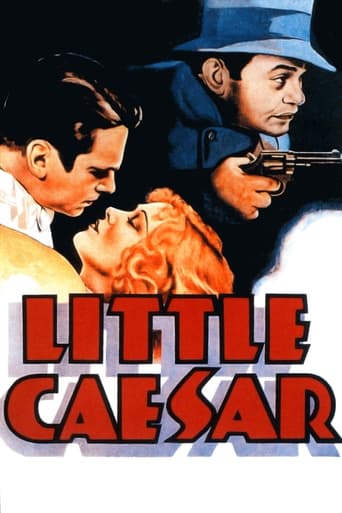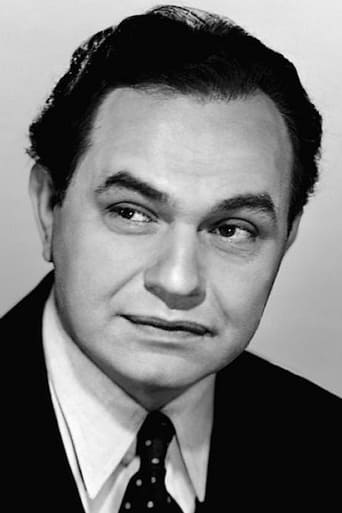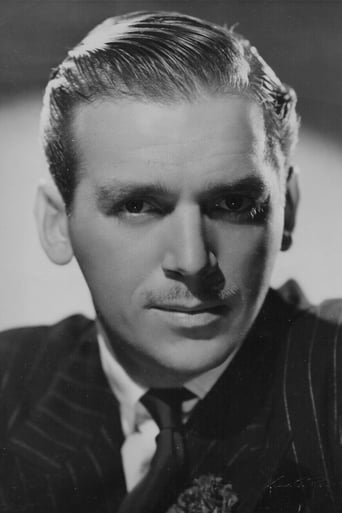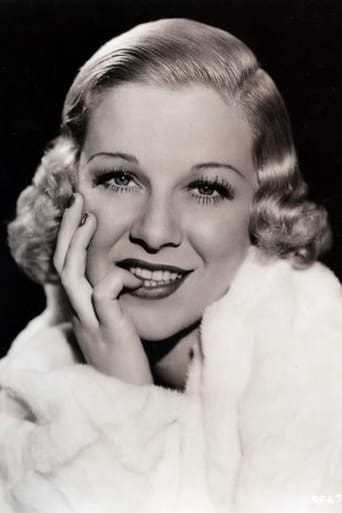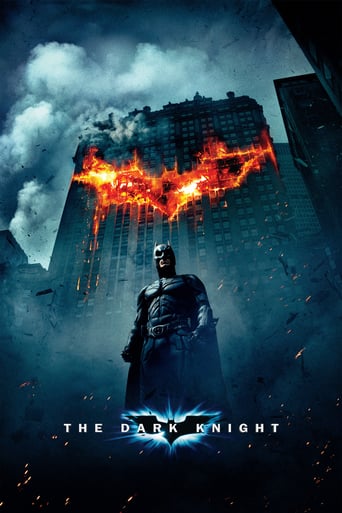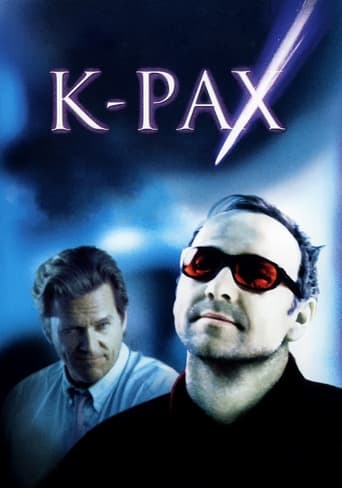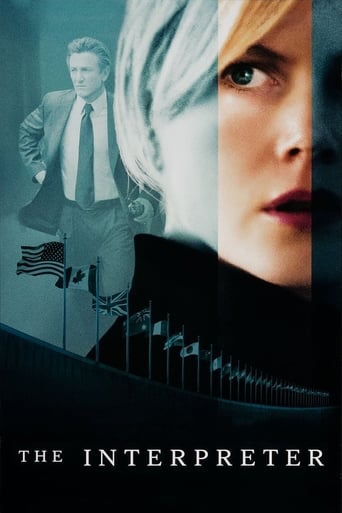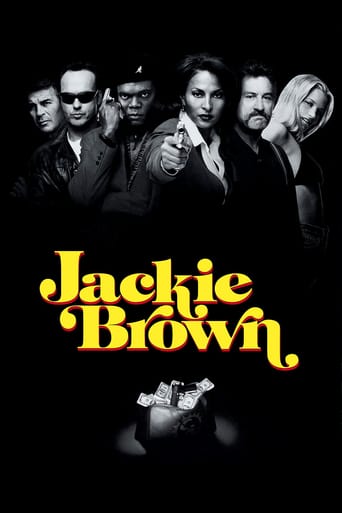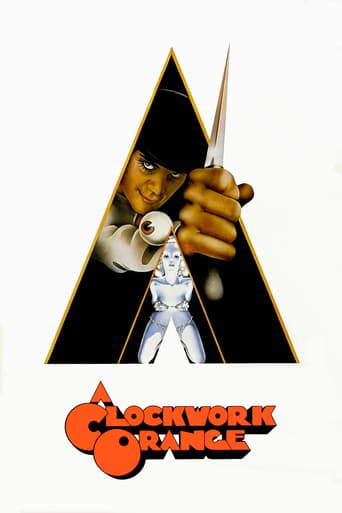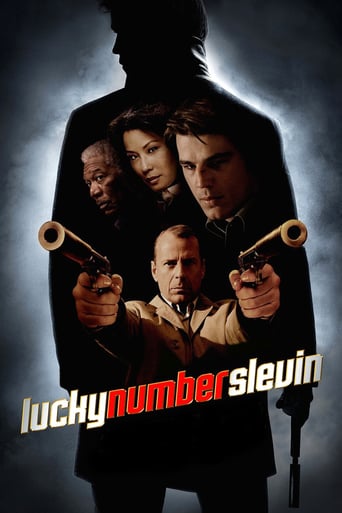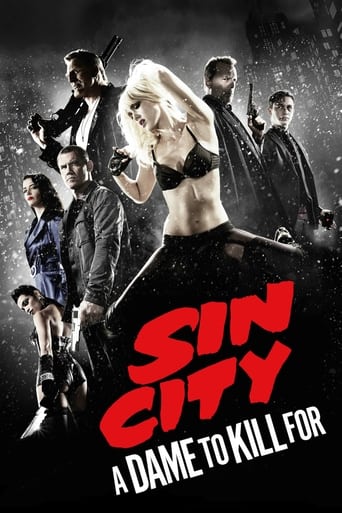Little Caesar (1931)
A small-time hood shoots his way to the top, but how long can he stay there?
Watch Trailer
Free Trial Channels
Cast


Similar titles
Reviews
Good concept, poorly executed.
Blending excellent reporting and strong storytelling, this is a disturbing film truly stranger than fiction
At first rather annoying in its heavy emphasis on reenactments, this movie ultimately proves fascinating, simply because the complicated, highly dramatic tale it tells still almost defies belief.
Mostly, the movie is committed to the value of a good time.
One of the earliest of the gangster films which launched a cottage industry: people pretending to be Cagney or Robinson. Edward G. Robinson made many great movies, but this is the genre he is most remembered for. Here he plays a guy who is bad from the beginning, who immediately got into the hierarchy of the criminal world. His friend Joe wants to be good but Robinson won't leave him alone and eventually drags him down. But he goes to his knees eventually. Unfortunately, he forgets that there is good in the world. He does have one moment of realization, but it's too late. He dies in the gutter which produced him in the first place. Robinson did a fine job and established great career.
Mervyn Leroy directed this early gangster picture that stars Edward G. Robinson as Rico, a tough-minded man who is determined to make something of himself, and so he, along with his friend Joe Massara(played by Douglas Fairbanks Jr.) goes to the big city, where they join a gang, and Rico quickly rises to the top, taking it over, and calling himself Little Caesar. He then sets his sights on a bigger gang, but after a high-profile assassination, Rico finds that despite his power and wealth, his violent lifestyle will catch up with him in the end... Robinson is the whole show here, so memorable is his performance that it makes up for the stilted nature of the picture.
First National must have spent all of ten bucks on the production. The sets are spare, the "streets" ghostly, while the gloom hangs heavy. Looks like the main expense was the nightclub scene that really comes alive with crowds and lighting. Good thing there's Robinson, otherwise the film would be thoroughly forgettable. As the snarling Rico, he delivers tough guy in spades, while climbing the ladder of criminal success. Actually, the violence totals much less than you might expect. Mostly it's gangsters dropping in on each other to size up the competition.Okay, the biggest reviewer issue seems to be whether Rico is gay or not. Mark me down in the affirmative. As others point out, there're simply too many hints to ignore. Besides it makes his tough guy all the more interesting, especially when he would jeopardize his criminal empire by making the decidedly non-tough Joe (Fairbanks) his "trusted" companion.Anyway, the movie creaks with age, has a ton of sometimes silly dialog, plus too much wooden acting (e.g. Fairbanks), but still showcases a central performance that remains a classic of its kind.
Little Caesar is a good example of a film that is historically important but which has dated very poorly. The camera work, by cinematographer Tony Gaudio, is mediocre, the spare soundtrack, by Erno Rapee, is garbled, and the acting very wooden. Even Edward G. Robinson, who became a star in this role, is merely OK. What makes this all the more amazing is that, just a few months later, in 1931, Jimmy Cagney would burst on to the screen with The Public Enemy, a film that holds up cinematically- technically and aesthetically- far better. Directed by Mervyn LeRoy, and written by Francis Edward Faragoh and Robert N. Lee, adapted from a novel by W.R. Burnett, the 78 minute, black and white film, limps along, despite being nominated for a Best Adapted Screenplay Academy Award. So unsure of its narrative power is the film that, like its silent era cousins, it makes extensive use of intertitle cards to convey plot points quickly, and also obscure the narrative fact of its indeterminate chronology.That's because there is a general awkwardness to this film that many early talky pictures had, and the acting style is unconvincing. There are scenes which simply make little sense, diegetically or not, and clank along in stereotypes. Aside form The Public Enemy, and the Paul Muni vehicle, Scarface: The Shame Of A Nation, one might also compare it to German Director Fritz Lang's film M, released the same year, which made a star of Peter Lorre, another rather un-movie star-like movie star. In that film, Lorre plays a pedophile child killer done in by a trial brought by local gangsters, enraged that his killings have brought the wrath of the cops down upon them. That film, like The Public Enemy, is far more realistic in its depictions of crime, criminals, and their motivations.

